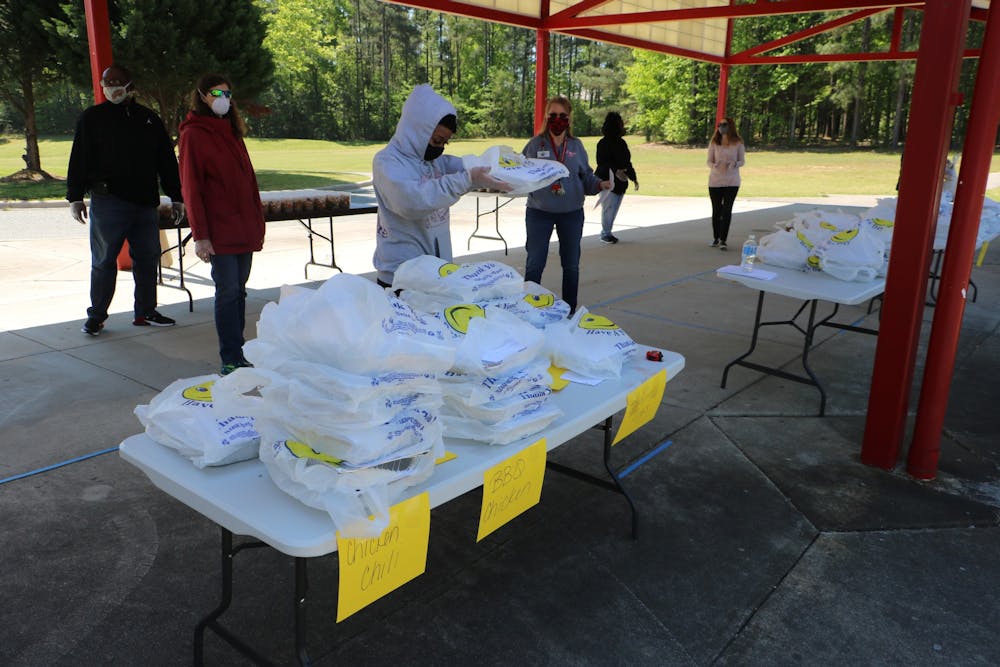Durham Public Schools partnered with several community organizations to resume feeding students and families Thursday after halting its original meal support program on April 6.
The new meal program, known as Durham FEAST, distributes free meals for breakfast and lunch prepared by Durham restaurants to 24 pickup sites nearly every weekday, according to a news release.
“Early in the week, families will get four breakfasts and four lunches for each child,” said Chip Sudderth III, the district’s chief communications officer. “Later in the week, they will get two breakfasts and two lunches for each child.”
More than 60 percent of the district’s students receive free or reduced-price lunches, he said. That’s why Durham Public Schools launched a daily meal support program on March 23 after closing schools a week before. For two weeks, district employees distributed meals to students at 81 sites across the county.
But on April 6, the district stopped the program after an on-site employee tested positive for COVID-19 and most of its staff applied for state emergency paid leave through April 30.
The Durham Public Schools Foundation is one of the district’s partners in the Durham FEAST initiative, though executive director Magan Gonzales-Smith said they don't usually do direct service work.
“But with schools closed, all of our other projects went on pause,” she said. “So we decided to turn our attention to the one of the most pressing needs for our students and their families, which is meal support.”
They had been providing weekend meals for families while the district still operated its weekday meal program. Under the new program, the foundation has been coordinating volunteers and private food donations.
Gonzales-Smith said they’ve recruited over 500 volunteers a week for various roles, like handing out food or loading food onto buses.



